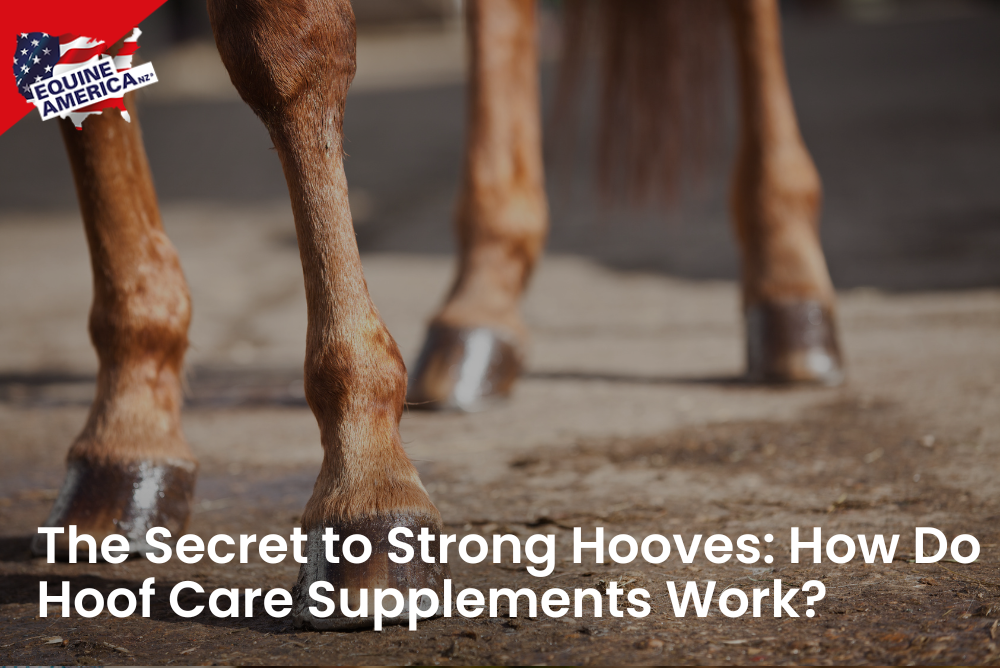In the world of equine wellness, the significance of respiratory health cannot be overstated. A horse's respiratory system is the silent hero, ensuring the flow of oxygen crucial for their vitality and performance. In this section, we will delve into the critical role of respiratory health in a horse's overall well-being and athletic prowess.
Common Respiratory Issues in Horses
Horses, despite their robust nature, can encounter various respiratory problems that affect their well-being and performance. Some common issues include:
- Allergies: Horses, like humans, can develop allergies to pollen, dust, molds, and even certain feeds. Allergic reactions can lead to sneezing, coughing, and nasal discharge, impacting their overall comfort.
- Infections: Respiratory infections are a concern in horses, often caused by bacteria or viruses. Conditions like equine influenza and equine herpesvirus can lead to fever, coughing, and nasal discharge.
- Exercise-Induced Issues: During intense physical activity, horses may experience exercise-induced pulmonary hemorrhage (EIPH). This condition can lead to bleeding in the airways, negatively affecting their breathing and performance.
CEnvironmental Considerations
A horse's environment has a significant influence on their respiratory health. Factors to consider include:
- Stable Conditions: Poorly ventilated stables with high ammonia levels from urine can irritate a horse's airways. Adequate ventilation and regular cleaning are crucial for maintaining clean air.
- Bedding Choices: The type of bedding used in stalls can impact respiratory health. Dusty or moldy bedding materials can introduce allergens into the horse's environment.
- Turnout Practices: Allowing horses ample time outdoors for grazing and fresh air is vital. Prolonged stall confinement can lead to respiratory issues.
Diet and Respiratory Health
Nutrition plays a crucial role in supporting a horse's respiratory system. Forage quality is of particular importance, as it can affect respiratory health in the following ways:
- Forage Quality: High-quality forage with low dust and mold content is essential. Dusty or moldy hay can introduce irritants that may trigger allergies and respiratory problems in horses.
- Hydration: Proper hydration is key to maintaining healthy respiratory function. Adequate water intake helps prevent airway inflammation and supports mucus clearance.
- Balanced Nutrition: Providing a well-balanced diet that meets a horse's nutritional needs helps support overall health, including respiratory well-being.
Allergen Management
Allergens and irritants can lurk in a horse's environment and diet, triggering respiratory distress. Managing these potential triggers is vital to ensure that your horse's respiratory system remains in optimal condition. We will discuss strategies for identifying and mitigating allergens.
Proper Ventilation and Air Quality
Proper ventilation and air quality within the stable environment are essential for respiratory health. Without adequate airflow and clean air, horses can be exposed to harmful contaminants. We will examine the importance of ensuring that the air they breathe is pure and conducive to their well-being.
Regular Exercise and Conditioning
Regular exercise is not only crucial for a horse's physical fitness but also for their respiratory system. Conditioning and strengthening the respiratory muscles can enhance their lung capacity and overall health. We'll explore the link between exercise and a strong respiratory system.
Hydration and Water Quality
Hydration is paramount in supporting respiratory health. Adequate water intake and the quality of drinking water can significantly impact a horse's ability to breathe comfortably. We will emphasize the importance of providing clean and accessible water sources.
Equine Supplements for Respiratory Health
In the pursuit of optimal respiratory health for your horse, various supplements and medications can provide valuable support. It's important to note that while these products can be beneficial, consultation with a veterinarian is essential before introducing any new supplement or medication into your horse's regimen. Here are some respiratory supplements and medications that may aid in improving and maintaining a horse's respiratory health:
- Airway Clearance Agents: These medications help in clearing mucus and improving the horse's ability to breathe comfortably. They are often used in cases of respiratory infections.
- Bronchodilators: Bronchodilators can help relax the smooth muscles of the airways, making it easier for horses to breathe. They are commonly used to manage conditions like heaves (recurrent airway obstruction).
- Anti-Inflammatories: Non-steroidal anti-inflammatory drugs (NSAIDs) can reduce airway inflammation and may be prescribed for horses with respiratory conditions.
- Corticosteroids: Corticosteroids are anti-inflammatory medications that can be used to manage allergies and respiratory inflammation.
- Supplements with Antioxidants: Antioxidants such as vitamin C and vitamin E may help reduce oxidative stress in the respiratory system, promoting overall respiratory health.
- Herbal Supplements: Some herbal supplements, like licorice root and elecampane, are believed to have soothing effects on the airways and may provide relief for horses with respiratory discomfort.
- Omega-3 Fatty Acids: Omega-3 fatty acids can have anti-inflammatory properties and may support respiratory health in horses.
- Nutritional Supplements: Nutritional supplements that support overall health, including a strong immune system, can indirectly contribute to respiratory well-being.
Remember that the use of supplements and medications should always be done under the guidance of a veterinarian who can assess your horse's specific needs and tailor a treatment plan accordingly. Additionally, a well-balanced diet, proper hydration, and a clean and well-ventilated environment are fundamental in maintaining a horse's respiratory health.
Final Thoughts
As we conclude our exploration of equine respiratory health, we underscore the importance of proactive measures in enhancing your horse's well-being. Their respiratory system, often taken for granted, is a cornerstone of their vitality and performance. By understanding and implementing strategies to support their breathing, we ensure that our equine companions lead healthy and fulfilling lives.
If you're seeking high-quality horse supplements, consider exploring the range of products offered by Equine America NZ to provide your horse with the best care for their respiratory health.
Please give us a call at Equine America NZ today at 0800 440 888 to learn more or leave an enquiry.




